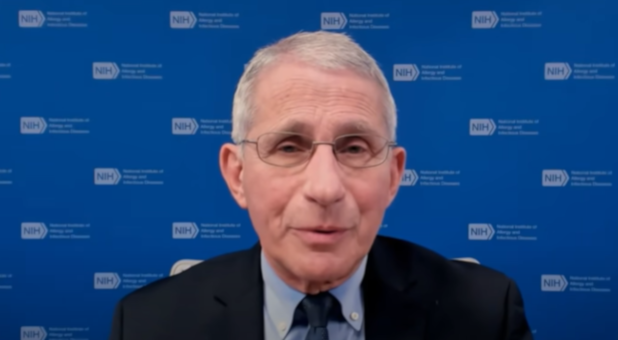How the Politicizing of COVID Has Become a Deadly Game
I just lost another friend to COVID, this time, a 69-year-old father and grandfather, an elder in my home congregation, as faithful a Christian man as you will find.
He joins the list of other friends and colleagues in the States who have died in the last year from COVID-related complications, along with an even longer list of loved ones and colleagues of some of my very close friends in India.
At the same time, the extreme politicizing of COVID makes it difficult (if not almost impossible) to know who to trust when it comes to preventing the spread of the disease. This is a terrible shame.
Personally, as much as I dislike wearing a mask, especially on long flights, I would wear one the rest of my life in public—with joy—if I knew by doing so I was saving other people’s lives.
When it comes to being vaccinated, if I were sure the vaccine had no long-term side effects or dangers, I would get vaccinated every month if I knew I was helping to protect my family, my co-workers, and even strangers whom I met. (And yes, I’d gladly to do it every month if I knew it would protect me as well.)
The problem is that I’m not sure about any of this, and not simply because of the many conflicting reports.
Things have become so politicized to the point that, depending on what news network you watch, you’ll have differing views about: 1) the origins of the virus, 2) the threat of the virus, 3) the merits (or demerits) of lockdowns, 4) the safety (or danger) and efficacy (or worthlessness) of the vaccines, 5) the proper role of the government and 6) the best course moving forward, especially for our children.
That’s why I say that this is a terrible shame. At times like this, we must do better. But will we? I’m not holding my breath (no insensitive pun intended).
Is Big Pharma just in this for money? Is Dr. Fauci a devil or a saint? Is the World Health Organization aligned with China? Can the CDC make up its mind? Should I believe CNN or Fox (or neither)? Are the feds trying to save our lives or take control of our lives? And on and on it goes.
Except now, this is not just a question of true news or fake news. This is a question of what decisions we should make as individuals, decisions which could affect our own lives and the lives of others. This is anything but a game.
A friend in New York just wrote to me, saying, “I know about 6 people who got COVID after the vaccine. I also know about 4 people who got some very strange, serious symptoms after the 2nd shot. My sister was extremely tired for weeks. A 29-year-old young man, who is supposed to get married next week, was taken to the hospital two days after the second shot. His vision was very blurry, so dizzy that he couldn’t stand up and extremely tired. He was in the hospital two weeks. They don’t know what is wrong with him. Sent him home. We’re praying for a miracle. I know others too.”
Yet a comment like this might well get censored if posted on social media, allegedly spreading misinformation about the vaccine. How can this be right?
At the same time, a colleague with a Ph.D. in chemistry has been posting articles in which he claims to debunk concerns about the vaccines, extolling their efficacy and challenging the views of those who are still not vaccinated.
Who, then, should I believe, the friend with a list of personal anecdotes (which are then added to countless scores of similar reports)? Or the academic colleague offering careful scientific research?
These days, even this question cannot be asked in a dispassionate way, since any source I turn to, be it online, in print or on TV seems to have a political bias as well. Who will fact-check the fact- checkers?
When people press me for my own views on the vaccine, my answer is always the same: Do the research for yourself and make an informed decision, all the more so if it involves your children.
I am not qualified to say anything beyond that, nor should anyone really care about my opinion in this case because of my lack of qualifications.
Unfortunately, I can’t point people with confidence to a particular news source (or even online source of information) without wondering how much political or philosophical bias has colored the research and the reporting.
And this leads to the obvious question: How do we fix this problem?
Candidly, I do not know. And so, rather than end this article with my normal word of encouragement or challenge or call to action, I end here with a couple of questions.
What would you propose? How do we move beyond the political gamesmanship and concentrate on our national health and safety? {eoa}
Read articles like this one and other Spirit-led content in our new platform, CHARISMA PLUS.














































